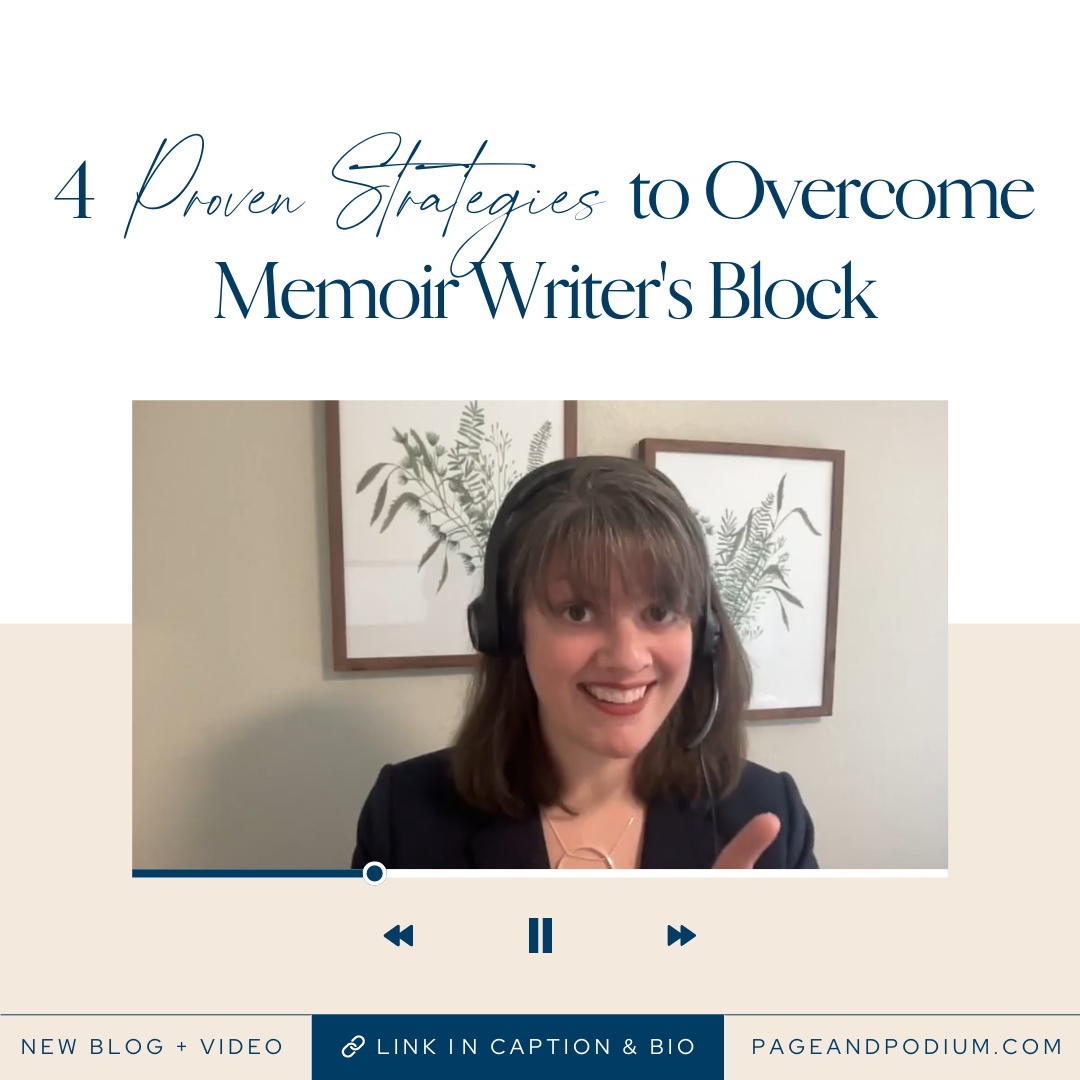Writing a book is a journey filled with excitement, challenges, and countless decisions. Among the most significant decisions prospective authors who reach out to me face is whether to embark on this adventure with the assistance of a ghostwriter or a book coach. As these prospective authors navigate through the vast landscape of writing & publishing services, the distinction between ghostwriting vs book coaching can often be blurred, leading to confusion and uncertainty. It’s also a decision that can shape the entire trajectory of the author’s project.
Keep reading as we delve into the realms of ghostwriting vs book coaching, unravelling their intricacies. We also talk to you a little bit about how to decide the path best suited to your unique writing journey and goals.
However, before moving forward into the decision-making process, it’s essential to grasp the essence of ghostwriting and book coaching. Read on!
Understanding Ghostwriting vs Book Coaching
What is Ghostwriting
Ghostwriting entails a collaborative partnership between an author and a professional writer who crafts the manuscript based on the author’s ideas, vision, and input. Contrary to common misconceptions, ghostwriting is far from a hands-off process. At least, nobody I know works like that.
For the most part, authors collaborate closely with the ghostwriter, providing information, feedback, and direction throughout the project. The ghostwriter translates this input into a finished manuscript, ensuring it reflects the author’s voice and vision. Authors can provide information through podcasts, videos, and other marketing materials, or you might have part or all of a very rough draft. You will hand that draft over, but most ghostwriters will want to interact with you at different points in the process.
At Page & Podium, we pretty much see our ghostwriting clients once a week. For some ghostwriters, it may vary to monthly or even sporadic yearly meetings. Regardless, you will be putting in regular input, involving marking up manuscripts, providing feedback, and requesting revisions. The big difference in the fact that you’re not doing the writing.
With our ghostwriting package, it’s important to emphasize that it’s not a passive, hands-off experience; rather, it’s a collaborative effort aimed at achieving your vision.
What is Book Coaching?
On the other hand, book coaching focuses on empowering authors to hone their writing skills and navigate the intricacies of the writing process. A book coach serves as a guide, offering support, feedback, and guidance on various aspects of writing, including book structure, chapter cohesion, and scene development. Unlike traditional writing classes or teaching sessions, book coaching emphasizes personalized support tailored to the author’s specific needs and goals, not teach grammar and writing.
When collaborating with individuals, both our book coaches and I adhere to this principle. Our goal is to assist you in crafting chapters that flow seamlessly, effectively conveying your intended message. We meticulously ensure that vivid scenes are depicted with precision, regardless of whether you’re writing a standard nonfiction piece, a memoir, or delving into the realms of fiction and novel-writing. Our dedication lies in bringing your scenes and stories to life, amplifying the impact of your narrative.
Of course, the really big difference from ghostwriting is evident: you, the author, are the one responsible for the writing. However, this doesn’t necessarily mean your book coach takes a hands-off approach for the remainder of the program.
In our one-on-one sessions, clients typically engage in a weekly 15-minute call, complemented by the submission of approximately 3,000 words, roughly 10 pages, per week for ongoing project review. This pace typically equates to completing a chapter for most clients, though this may vary depending on the nature of your book.

Factors to Consider When Choosing Ghostwriting vs Book Coaching
Now that we have a clear understanding of each service, let’s discuss a few key factors you should consider when making your decision:
- Personal Writing Preferences
Central to the decision-making process is the author’s personal writing preferences. Do you enjoy the act of writing and envision yourself actively involved in crafting your manuscript? Or do you prefer to entrust the writing process to a professional while providing input and direction along the way? Reflecting on your writing preferences and comfort levels can illuminate the path forward.
If you’re someone who finds joy in the writing process, perhaps keeping a journal or maintaining a blog, frequently composing emails, or handling communications as part of your job, then collaborating with a book coach might be an excellent fit for you.
I’ve encountered individuals who initially doubted their ability saying “I don’t know if I can do this,” but decided to give it a chance, only to discover a newfound passion for writing. Contrarily, some clients approach me with a strong aversion to writing, saying, “I hate writing”. In such cases, I’m honest about the challenges they’ll face, emphasizing that while I provide support, ultimately, they’re responsible for the writing process.
If writing isn’t enjoyable for you, maintaining motivation throughout the journey can be incredibly challenging. Authors who enjoy active participation in the writing process may prefer book coaching, while those seeking professional assistance with content creation may opt for ghostwriting.
- Desire for Control
Another crucial consideration is your comfort level with relinquishing control over the writing process. Are you open to collaborating closely with a ghostwriter, providing feedback and revisions, but ultimately entrusting the writing to a professional? Or do you prefer to retain full control over every aspect of your book, from conception to completion?
As previously emphasized in this article, with ghostwriting, you’re not the one implementing changes; that’s the ghostwriter’s role. However, it doesn’t mean you’re not actively involved.
On the contrary, with book coaching, your participation is crucial. For instance, you’ll be submitting those 3,000 words per week, at least with our service, but you won’t be the one physically writing them.
If you possess a clear vision for your book, with specific ideas regarding its structure and tone, or if you’ve already penned portions of it, ghostwriting may pose challenges. It involves relinquishing considerable control. In such instances, opting for a book coach might be more suitable for you.
- Current Writing Habits
Evaluate your current writing habits and practices. Are you accustomed to regular writing sessions, whether through journaling, blogging or professional communication? Consistent writing habits are a hallmark of successful authors. It can also contribute to your success, whether you opt for ghostwriting or book coaching.
Penning daily journal entries or crafting compelling blog posts, habitual writing fosters productivity and creativity. By assessing the frequency and quality of your writing sessions, you gain valuable insights into your capacity to sustain momentum throughout the writing process.
If your current writing habits lean towards sporadic or infrequent engagement, consider how you can adapt your routines to align with the demands of ghostwriting service. Ghostwriting typically requires authors to provide input and feedback regularly, necessitating a level of consistency in communication and engagement. Alternatively, book coaching empowers authors to drive the writing process independently, leveraging their existing writing habits to maintain progress.

- Time commitment
Consider the time commitment required for both ghostwriting and book coaching. Are you prepared to dedicate significant time and energy to regular writing sessions, feedback sessions, and revisions?
If you’re facing a tight deadline, ghostwriting might be the better choice for you. However, that’s not to say that completing a book coaching program quickly isn’t possible. I’ve had clients finish books in as little as eight weeks. Yet, if you’re enrolled in my coaching program, and you’re submitting 3,000 words per week, incorporating feedback, revising, and repeating the process, it may take a bit longer.
On the other hand, with a ghostwriter, they can take your initial input and proceed swiftly, making it an appealing option if you’re aiming for a rapid completion of your book.
Assess your availability and commitments to determine which approach best suits your schedule and lifestyle.
- Budget Considerations
Another factor you want to consider is your budget and this is kind of an elephant in the room. Book coaching tends to be considerably more budget-friendly compared to ghostwriting, at least in our case. While I’m aware that some individuals charge seemingly exorbitant fees for book coaching, that’s not our approach. Generally, book coaching is more cost-effective because you handle all the writing, and we can work with multiple clients simultaneously. This affordability factor is likely to appeal to many.
Although budget considerations are undoubtedly important, they should not overshadow the significance of selecting the right approach for your writing journey. Avoid making decisions based solely on cost, as the quality and outcome of your manuscript should remain paramount. Consider the long-term investment in your writing journey and prioritize quality and alignment with your goals.
Making an Informed Decision
As you approach the final stages of deciding ghostwriting vs book coaching, it’s also crucial to consider some other keys that can impact the trajectory of your writing journey. Here is a deeper exploration of these final considerations:
- Seek Clarity
While the listed factors can certainly assist you in making the best choice for your project, it’s equally important to first acknowledge the inherent uniqueness of your book project. Understanding that there’s no one-size-fits-all solution in the realm of literary creation is key. Dedicate ample time to meticulously explore your options, engaging in thoughtful deliberation as you weigh the merits of ghostwriting versus book coaching. To enhance your chances of making the right decision, seek guidance from seasoned professionals who can offer valuable insights and assist you in clarifying your objectives. At Page and Podium, we are dedicated to helping our clients make well-informed decisions that align with their creative vision.
- Take Action
Irrespective of whether you ultimately opt for the assistance of a ghostwriter or a book coach, it’s imperative to take decisive action in pursuit of your writing aspirations. You should embrace the collaborative partnership and unwavering support provided by your chosen service, recognizing that proactive engagement is essential to realizing your literary ambitions. Commit wholeheartedly to your vision, embracing the challenges and triumphs of the writing process with determination and resilience. By embracing a proactive mindset and demonstrating unwavering dedication, you can propel yourself closer to the realization of your creative goals.
Final Thoughts
When it comes to deciding ghostwriting vs book coaching, it’s crucial to understand the nuances of each service and consider your personal preferences, goals, and constraints. Whether you thrive in a collaborative partnership with a ghostwriter or prefer the empowering guidance of a book coach, there’s no one-size-fits-all solution. Reflect on your writing habits, desired level of control, timeline, and budget considerations to make an informed decision aligned with your vision and aspirations.
Remember, regardless of the path you choose, your writing journey is a deeply personal and rewarding endeavor. Embrace the approach that resonates with you and embark on your book project with confidence and clarity. If you’re still uncertain about which path to take, consider scheduling a consultation with a publishing professional who can provide personalized guidance tailored to your needs.
Ultimately, whether you choose ghostwriting or book coaching, the most important thing is to take that first step towards bringing your book to life. With the right support and guidance, you can transform your ideas into a compelling narrative that captivates readers and leaves a lasting impact.
Your story deserves to be told, and with the right guidance, you can turn your writing dreams into reality.



